a. Figure (a) shows the optical axis of a lens, the point source of light A, and its virtual image A′ . Trace the rays to find the position of the lens and of its focuses. What type of lens is it?
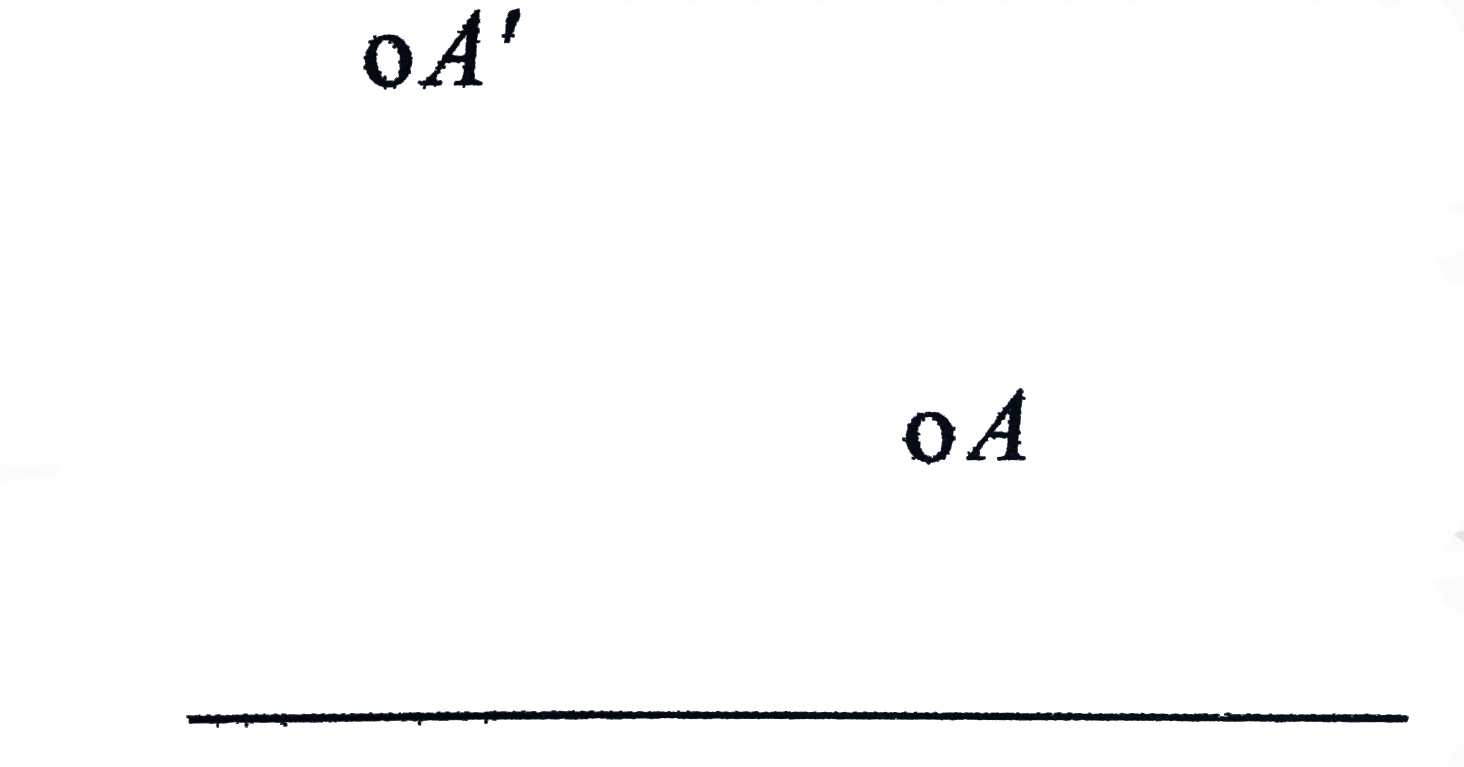
b. Solve the problem similar to the previous one using Figure.
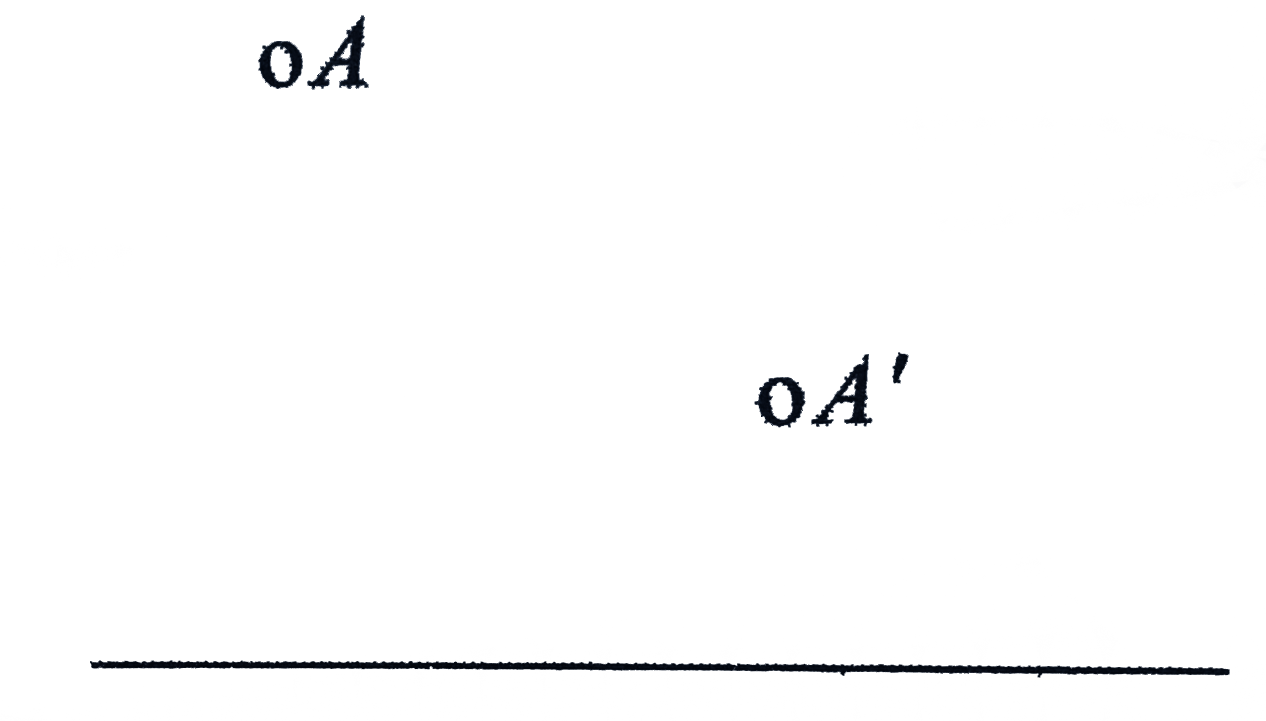
a. The paths of the rays are shown in the following figure. First, draw the ray AA′ until it intersects with the principal optial axis and then find the center of the lens C. Since the virtual image is magnified, the lens is convex.
Draw the ray AB parallel to the principal optical axis. It is refracted by the lens so that it passes through its focus and its continuation passes through the virtual image.
The ray A′B intersects the principal optical axis at point F, the focus of the lens.
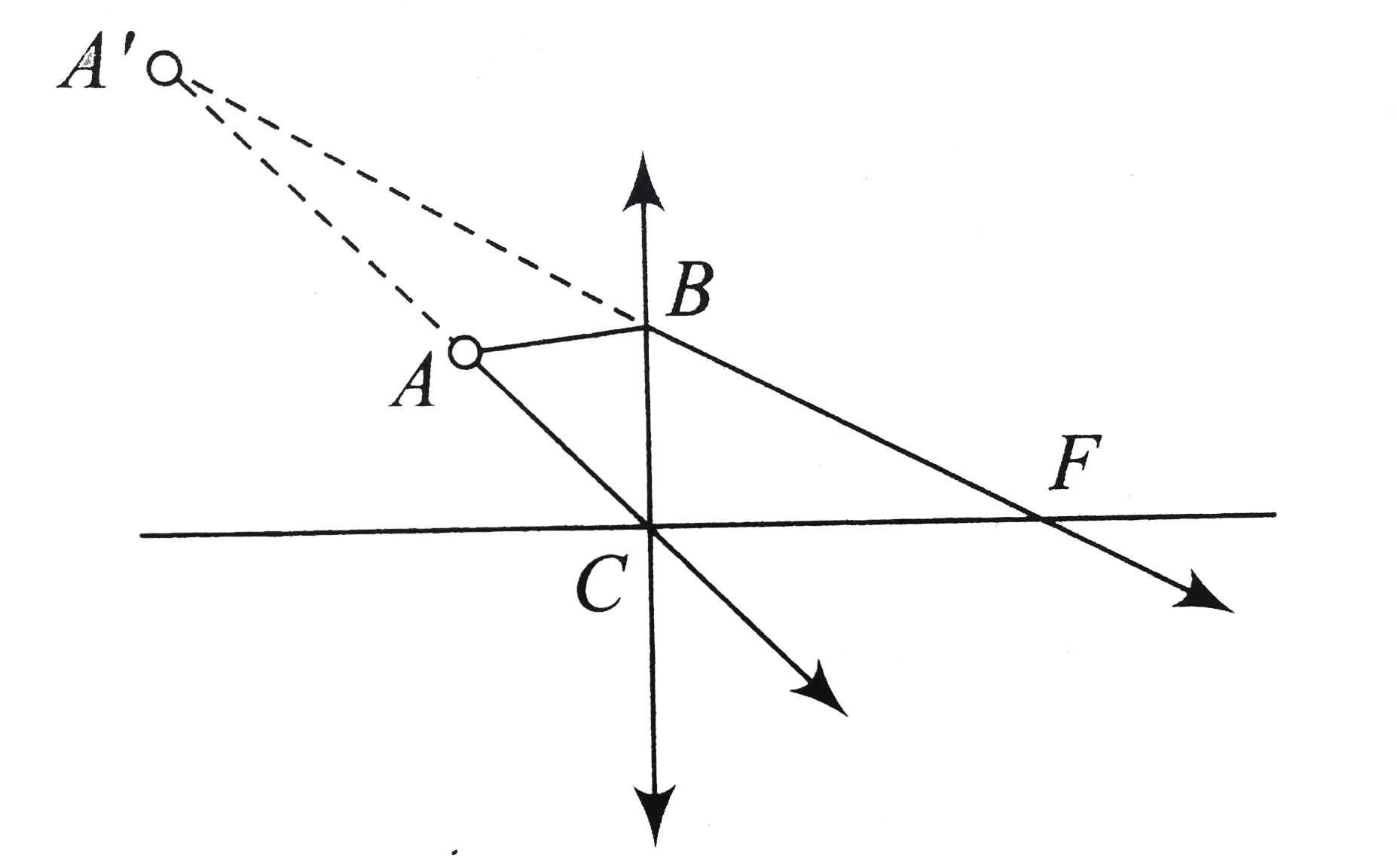
b. The paths of the rays are shown in the following figure.
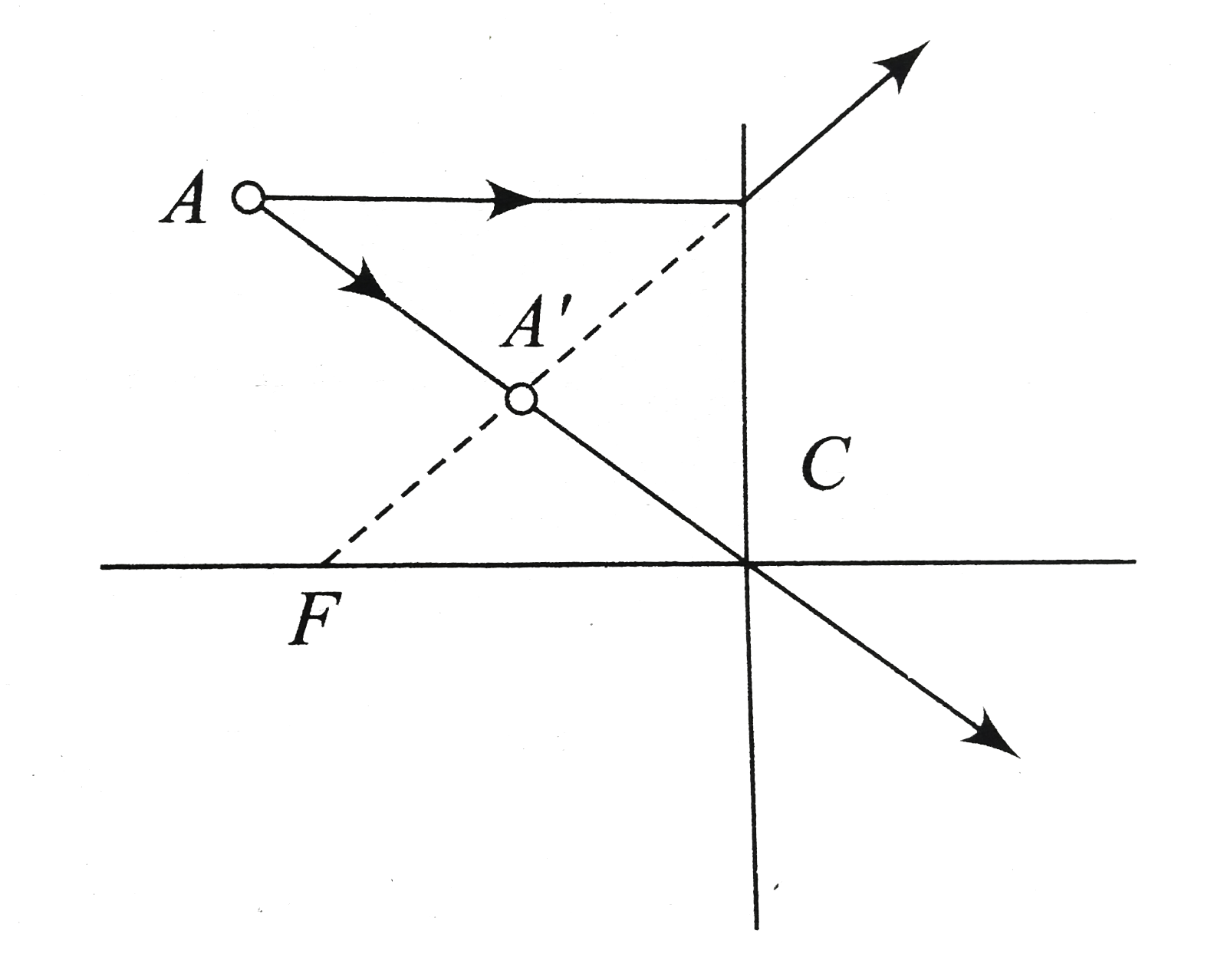
Topper's Solved these Questions
- GEOMETRICAL OPTICSBOOK - CENGAGE PHYSICSCHAPTER - GEOMETRICAL OPTICSEXERCISE - Exercise1.7
21 Videos
- GEOMETRICAL OPTICSBOOK - CENGAGE PHYSICSCHAPTER - GEOMETRICAL OPTICSEXERCISE - Subjective
26 Videos
- GEOMETRICAL OPTICSBOOK - CENGAGE PHYSICSCHAPTER - GEOMETRICAL OPTICSEXERCISE - Exercise1.5
22 Videos
- FRICTIONBOOK - CENGAGE PHYSICSCHAPTER - FRICTIONEXERCISE - QUESTION BANK
1 Videos
- GRAVITATIONBOOK - CENGAGE PHYSICSCHAPTER - GRAVITATIONEXERCISE - Question Bank
39 Videos
Similar Questions
Given an optical axis MN and the positons of a real object AB and its image A'B', detormine diagramatically the positon of the lens (its optical centre O) and its foci, it it a converging or diverging lens? Is the image real or virtual?
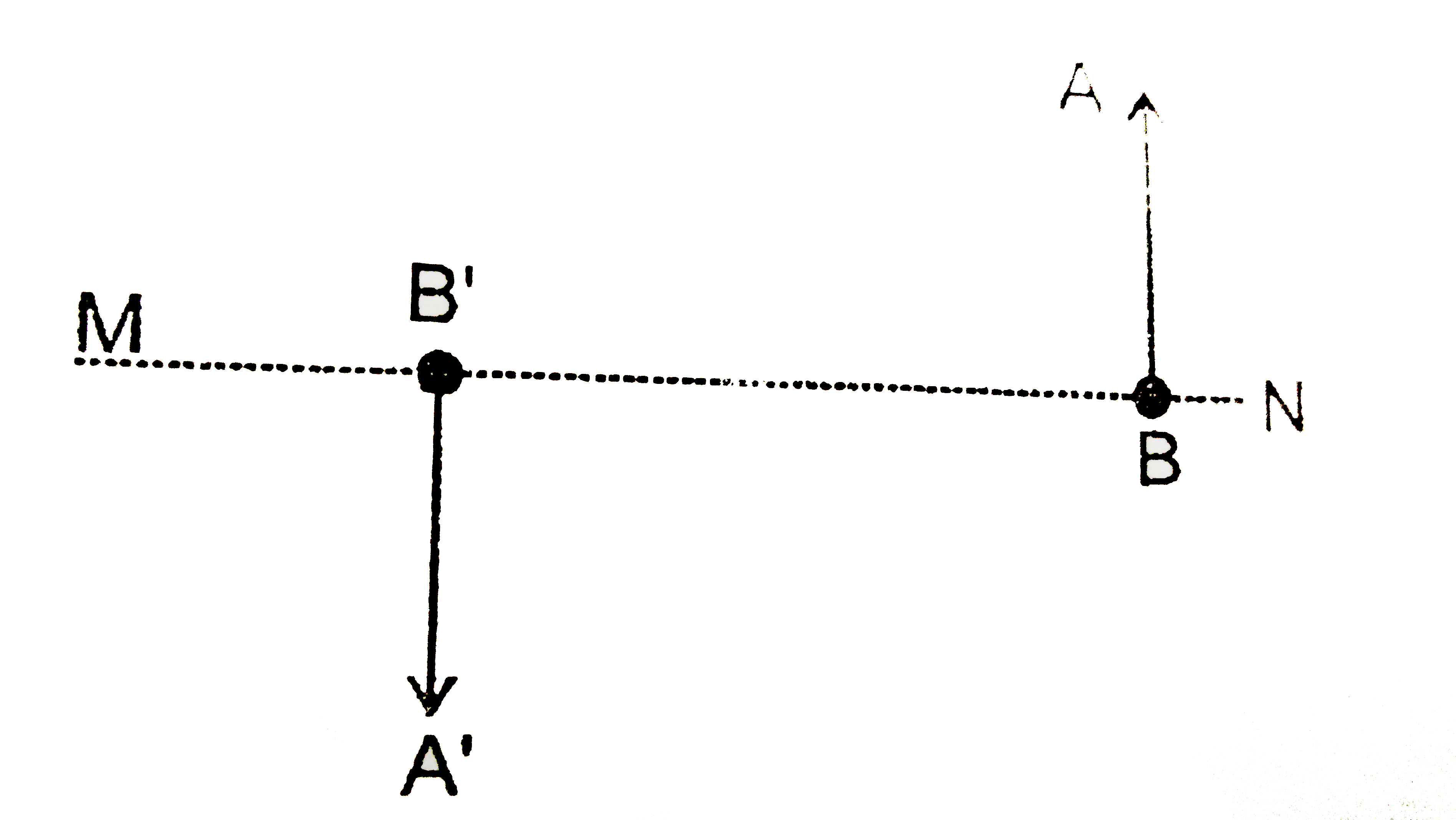
View SolutionA lens placed at a distance of 20cmfrom a object produces of virtual Image 2/3the size of the object.Find the position of the image,kind of lens and its focal length.
View Solution
Knowledge Check
A lens if placed between a source of light and a wall. It forms images of areaA1 and A2 on the wall for its two different positions. The area of the source or light is
A√A1A2BA1+A22CA1−A22D1A1+1A2A point source of light is moving at a rate of 2cm−s−1 towards a thin convex lens of focal length 10 cm along its optical axis. When the source is 15 cm away from the lens the image is moving at -
A4cm−s−1 towards the lensB8cm−s−1 towards the lensC4cm−s−1 away from the lensD8cm−s−1 away from the lens
A glass wedge with a small angle of refraction θ is placed at a certain distance from a converging lens with a focal length f ,one surface of the wedge being perpendicular to the optical axis of the lens. A point sources S of light is on the other side of the lens at its focus. The rays reflected from the wedge (not from base) produce, after refraction in the lens , two images of the source displaced with respect to each other by d. Find the refractive index of the wedge glass. [Consider only paraxial rays.]
_E01_162_Q01.png)
View SolutionFind the position of the image formed by the lens combination given in the following figure :
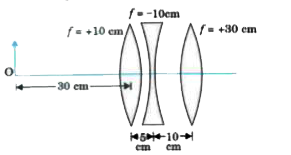
View SolutionAB is the optic axis of a lens. Lens is not shown in the figure. O and I are the position of object and image. Then match of following.

View SolutionIn Figure. , the length of object AB is 9cm. Find the nature and position of the final image and also its length. Assum that each lens is a thin lens.
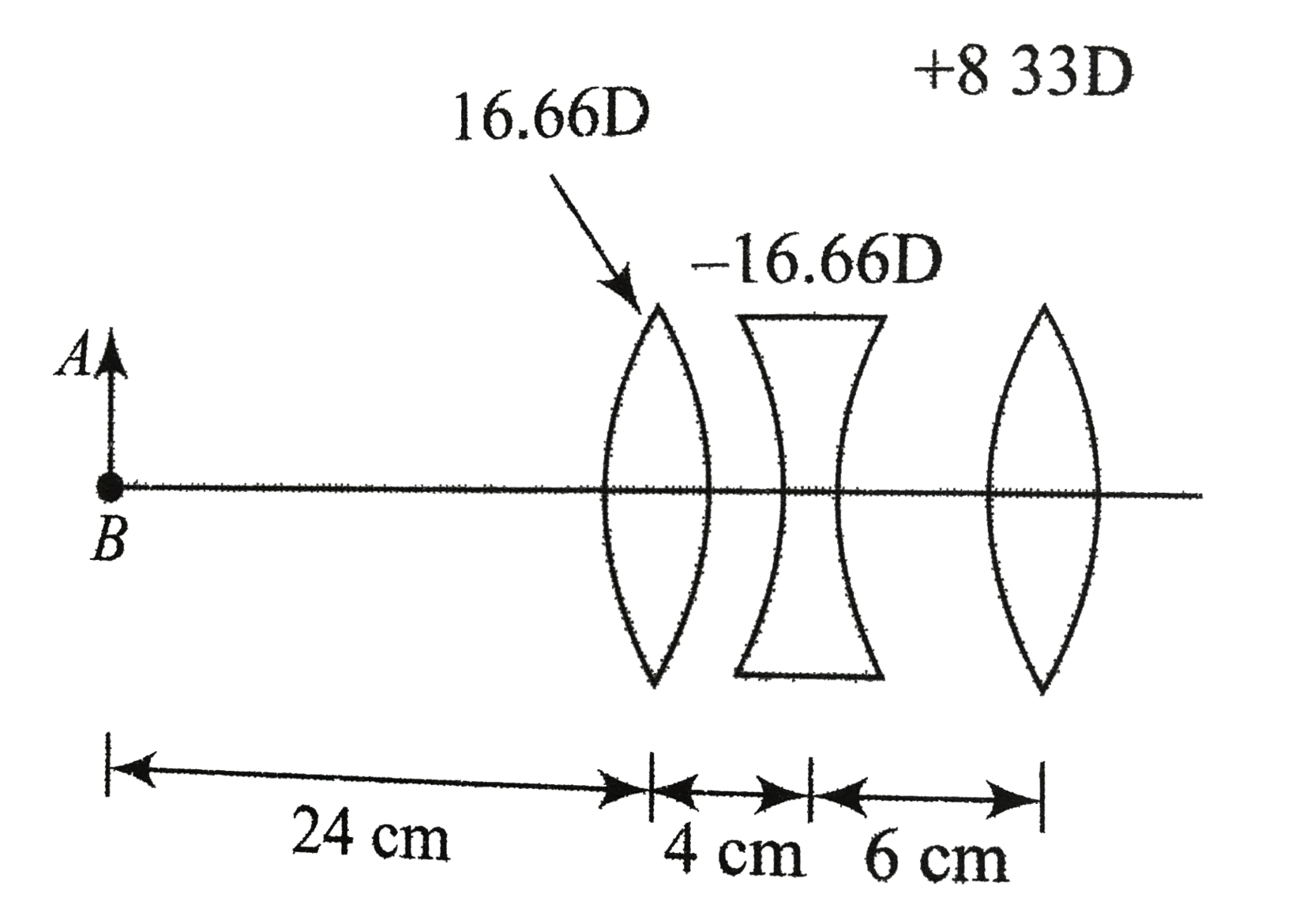
View SolutionBy means of plotting find :
(a) the path of a ray of light beyound thin converging and diverging lenses (Fig. where OO' is the optical axis, F and F' are the front and rear focal points),

(b) the position of a thin lens and its focal points if the position of the optical axis OO' and the positions of the cojugate3 points P,P (see Fig.) are knows , the media on both sides of the lenses are identical,
(c ) the path of ray 2 beyond the converging and diverging lenses (Fig. ) if the path of ray 1 and the positions of the lens and of its

optical axis OO' are all known, the media on both sides of the lenses are identical.
View SolutionConverging light rays are falling on a convex lens. If the focal length of the lens is 30 cm, then find the position of the image.
View Solution
